I want to display these registry key values:
- MSSQL12.MSSQLSERVER
- MSSQL15.SQLEXPRESS
- MSSQL11.TEW_SQLEXPRESS
Code:
if (RegOpenKeyEx(HKEY_LOCAL_MACHINE,
TEXT("SOFTWARE\\Microsoft\\Microsoft SQL Server\\Instance Names\\SQL"),
0,
KEY_READ | KEY_WOW64_64KEY,
&hKey) == ERROR_SUCCESS){
DWORD i, retCode, cchName, buflen;
TCHAR achKey[MAX_KEY_LENGTH]; // buffer for subkey name
DWORD cbName; // size of name string
TCHAR achClass[MAX_PATH] = TEXT(""); // buffer for class name
DWORD cchClassName = MAX_PATH; // size of class string
DWORD cSubKeys = 0; // number of subkeys
DWORD cbMaxSubKey; // longest subkey size
DWORD cchMaxClass; // longest class string
DWORD cValues; // number of values for key
DWORD cchMaxValue; // longest value name
DWORD cbMaxValueData; // longest value data
DWORD cbSecurityDescriptor; // size of security descriptor
FILETIME ftLastWriteTime; // last write time
retCode = RegQueryInfoKey(
hKey, // key handle
achClass, // buffer for class name
&cchClassName, // size of class string
NULL, // reserved
&cSubKeys, // number of subkeys
&cbMaxSubKey, // longest subkey size
&cchMaxClass, // longest class string
&cValues, // number of values for this key
&cchMaxValue, // longest value name
&cbMaxValueData, // longest value data
&cbSecurityDescriptor, // security descriptor
&ftLastWriteTime); // last write time
result = RegGetValue(
hKey, NULL, L"MSSQLSERVER",
RRF_RT_REG_SZ, 0, buf, &bufsz);
if (result != ERROR_SUCCESS) {
printf("Failed read value");
_getch();
return -1;
}
wprintf(L"%s\n", buf);
}
I need to replace L"MSSQLSERVER" with the variable keyName, but I don't understand how to do that. I'm trying to write the name of the key to a variable.
LPWSTR aResult;
LPSTR keyName;
RegEnumKeyExA(hKey, i, keyName, &cchName, NULL, NULL, NULL, NULL);
MultiByteToWideChar(0, 0, keyName, -1, aResult, 0);
result = RegGetValue(
hKey, NULL, aResult,
RRF_RT_REG_SZ, 0, buf, &bufsz);
But I think it's wrong. Here keyName is NULL. And keyName is LPSTR, but RegGetValue() needs LPCWSTR.

